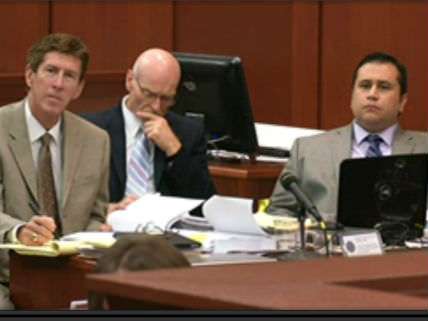Former Sanford Police Chief: 'Stand Your Ground' Had Nothing to Do With Zimmerman Decision

Last month The New York Times reported that George Zimmerman's trial is is "spotlighting Florida's Stand Your Ground law," even though "that law has not been invoked in this case." By way of explaining that apparent paradox, the Times said the law "was cited by the Sanford police as the reason officers did not initially arrest Mr. Zimmerman" for shooting Trayvon Martin. But in a recent interview with CNN, former Sanford Police Chief Bill Lee emphasized that the decision not to charge Zimmerman did not hinge on the absence of a duty to retreat:
It had nothing to do with Florida's controversial "Stand Your Ground" law, he said; from an investigative standpoint, it was purely a matter of self-defense.
That certainly was not the impression left by early coverage of this case, especially in the Times, which implied that Florida's broad definition of self-defense gave Zimmerman a license to kill in circumstances that did not truly justify the use of deadly force. And although the paper more recently has acknowledged that the right to stand your ground does not figure in Zimmerman's defense, it continues to say things like this:
For supporters of the Martin family, Mr. Martin's death was part of a more complex tale of profiling and injustice. But this perception has run up against the protocols of a criminal trial and Florida's expansive self-defense laws. These laws, critics say, give too much leeway to people who say they acted violently because they felt threatened.
The Times is right that "the protocols of a criminal trial"—in particular, the requirement that the prosecution prove its case beyond a reasonable doubt—make it harder to convict Zimmerman. That is what they are supposed to do. But it is hard to see how "Florida's expansive self-defense laws" pose an obstacle for those who believe the shooting was not justified when Zimmerman could have made exactly the same self-defense claim in any state.


Show Comments (108)